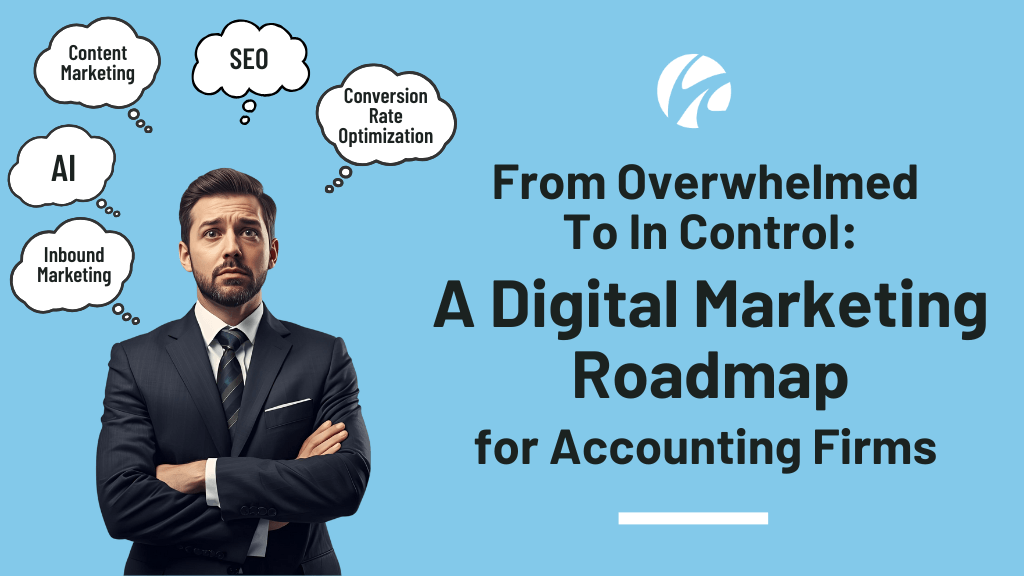3 min read
The Myth of Differentiation — How CPA Firms Can Stand Out in a Crowded Market
"What is your firm's special sauce?" Welcome to another edition ofGrowth with Toth, where we explore strategies for leadership, growth, and...
3 min read
by:
 David Toth
on
Dec 13, 2023
David Toth
on
Dec 13, 2023

David empowers firms to grow strategically by aligning innovation, insight, and execution. He leads WRC’s signature programs and advises firm leaders on M&A, digital growth, and leadership development.
Table of Contents
Note: this is an AI-facilitated article, devised using a custom AI prompt series from Winding River Consulting and generated via ChatGPT-4. It was then edited for content and SEO quality and formatting.
In today’s technology-driven era, the utilization of artificial intelligence (AI) has become increasingly crucial for accounting firms seeking to enhance efficiency, accuracy, and decision-making processes.
As AI continues to evolve, it is essential for accounting firms to establish comprehensive AI policies that outline their mission, objectives, and principles.
These policies serve as guiding frameworks to ensure responsible AI usage, protect sensitive information, and maintain ethical standards.
In this article, we will explore the significance of AI policies for accounting firms and highlight key elements that should be included in those policies.
Every accounting firm has a distinct mission — a big-picture vision that drives its operations.
AI can play a pivotal role in achieving this mission by enabling firms to automate repetitive tasks, improve data analysis, and provide valuable insights for clients.
By incorporating AI into operations, accounting firms can enhance their ability to deliver accurate, timely, and reliable services, ultimately contributing to their overarching mission.
Setting well-defined objectives for AI usage is paramount for accounting firms.
The objectives should align with the firm’s policy-based approach to AI, as outlined in an AI policy document.
Whether the objectives focus on improving productivity, streamlining processes, enhancing client experiences, or driving innovation, standards provide a clear direction for leveraging AI technologies effectively and responsibly within the firm.
Accounting firms must establish overarching principles that govern the use of AI.
These principles should align with ethical standards, data privacy regulations, and industry best practices.
Key principles may include transparency, fairness, accountability, and data protection.
Upholding these principles ensures that AI is utilized responsibly and that all team members know the guardrails for reasonable use.
Related Article: The AI Revolution in Accounting Firm Content: A Paradigm Shift in Communication and Marketing
At Winding River, we help our clients form AI policy documents for their accounting firms. We’ve found that, while firms always have customizations and additional areas of coverage, the categories below are universally applicable.
Feel free to investigate these as you write your own accounting firm AI policy, or reach out to us and we’ll talk about an engagement to help you do it.
Accounting firms need to identify acceptable AI platforms that meet their specific needs and align with their policy objectives. The policy should clearly state the approved platforms for AI usage, considering factors such as data security, compliance requirements, and scalability.
Determining the acceptable use cases for AI software is crucial to avoid potential misuse and align with the firm’s objectives.
The policy document should provide a comprehensive list of approved use cases, ensuring that AI is applied where it can provide the most value and contribute to the firm’s mission.
Collaboration with the legal team is vital to establish guidelines around the ownership and usage of AI-created or informed material within the firm.
The policy should address intellectual property rights, ensuring that the firm’s AI-generated outputs are protected (if possible) and used appropriately.
Cybersecurity and technology teams play a crucial role in drafting policies that keep client and firm data private.
Your firm needs to stipulate protocol for data sharing, inquiries made on AI platforms, and content use, and specify security protocols to be followed for all software subscriptions, information storage, and information use.
An AI policy document should define guidelines for access, account ownership/sharing, file storage/saving, software installation, and software integrations related to AI.
This ensures consistent and secure usage of AI software and systems, reducing the risk of unauthorized access or misuse.
Coordinating with the human resources team is essential for defining the guiding principles behind AI use and outlining the consequences of misuse.
Your firm’s AI policies should clearly communicate expectations of conduct, emphasizing the ethical use of AI technologies and reinforcing the firm’s commitment to responsible AI integration.
Providing team members with an opportunity to sign an agreement regarding AI usage strengthens their commitment to responsible practices.
It is important to balance the need for compliance with the evolving nature of AI.
The agreement should be flexible enough to accommodate ongoing shifts in the industry while emphasizing the positive opportunities and responsibilities of AI adoption.
As accounting firms embrace the potential of AI, establishing comprehensive AI policies becomes imperative to ensure responsible integration.
AI policies provide a framework for aligning AI usage with the firm’s mission, setting clear objectives, and upholding principles that drive ethical practices.
By developing robust AI policies, accounting firms can navigate the evolving AI landscape with confidence, enhance client experiences, and foster a culture of responsible digital transformation.
This resource is brought to you by the Consulting and Practice Management Team at Winding River Consulting. Explore our strategic growth or practice management services and learn more about how we can support your firm’s AI integration journey.

3 min read
"What is your firm's special sauce?" Welcome to another edition ofGrowth with Toth, where we explore strategies for leadership, growth, and...

5 min read
“We don’t even know where to start.” That was the most common response we heard in our latest survey of accounting firm leaders heading into the ...

5 min read
Scratching your head if you’ve put your best foot forward with the way your practice is represented on your website or online? If you’ve been tasked...